AIxMusic
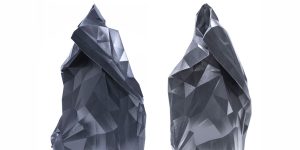
Uncertainty with AI-terity (Music Performance)
Koray Tahiroğlu (FI/TR)
The composition Uncertainty keeps the musician in a hesitant state of performance, providing a non-rigid but identifiable musical events, followed by ever shifting new sounds. Uncertainty is a composition written for the AI- terity instrument that comprises computational features of a particular artificial intelligence (AI) model to generate relevant audio samples for real- time audio synthesis. The unusual behaviour of the Al-terity puts the performer in an uncertain state during performance. Together with being able to move through timbre-changes in sonic space, the emergence of new sounds allows the musician to explore a whole new range of musical possibilities. Composition turns into a continuous state of playing, reformulating an idiomatic relationship with the Al-terity and opening up a fresh variety of musical demands.

Demystifying AI with Music
Roberto Viola (IT), Elaine Chew (US/UK), Patrick van der Smagt (DE), Matthias Röder (DE)
Welche Bedeutung könnte KI in der Musik haben? Kann sich KI von Musik inspirieren lassen? Das Gespräch wird sich mit diesen Fragen auch im Hinblick auf eine europäische Vision der "vertrauenswürdigen KI" befassen.
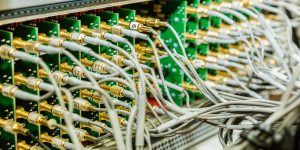
Ars Electronica AIxMusic Online Hackathon: Final Presentations
Annelies Termeer (NL) moderator + Participants
Anlässlich des ersten Online-Festivals veranstaltet Ars Electronica seinen ersten internationalen AIxMusic Hackathon im Rahmen des AIxMusic Festivals 2020.
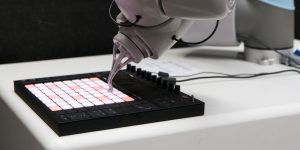
AIxMusic - Artificial Stupidity
Moisés Horta-Valenzuela (MX/US), Artemi-Maria Gioti (GR), Ali Nikrang (AT), Alex Braga (IT) and Portrait XO (US)
Das Panel "Artificial Stupididity" lädt KünstlerInnen des Ars Electronica Festivals ein, ihre Erfahrungen im Kontext von AIxMusic auszutauschen. Das Thema KI bekommt aktuell große Aufmerksamkeit in den Medien und wird kontrovers behandelt.
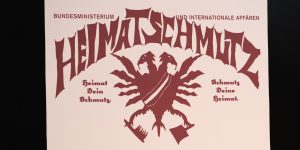
DIRTY LIVES BETTER
Barbara Ungepflegt (AT), Elsbeth Wallnöfer (IT)
Since December 2017 Barbara Ungepflegt has been Minister for Homelandtrash and International Affairs. Ungepflegt considers urgent measures to preserve the constantly disappearing homeland dirt until it is too late for Team Austria, animals and dumplings. In cooperation with Elsbeth Wallnöfer, chairwoman in the home country, the Minister will present in detail the program of DIRTY LIVES BETTER at the 2020 Ars Electronica Festival.
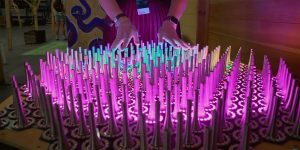
This is Sónar+D
Sónar+D – Sónar Festival's creative technologies conference – is an international congress exploring how creative minds are changing our present and imagining new futures, in collaboration with researchers, innovators and business leaders from all sectors and industries.
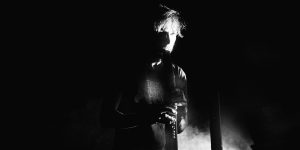
AI x Music Festival: Bot Bop Musikalisches Gestalten und Innovation mit AI
Andrew Claes (BE) and Dago Sondervan (NL)
Musical phrases are fed in real-time to a live coded machine learning model. The emerging virtual agent reacts and is again reacted to, creating an organic feedback loop. Utilising improvisational, instant composing and algorithmic musical techniques, listen to the duo becoming a trio during the course of this performance.
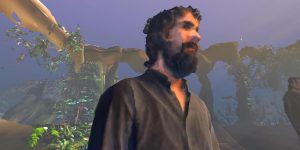
Acte de Fe
Marc Vilajuana, Adrià Grandia, Carlos Martorell
Act of faith (Acte de Fe) is an exploration of our relationship with technology, its similarities with the one we have with religion, the tools involved in both processes, and its impact on us and in our sacred/private space. Mise-en-scène will consist in a liturgy performed by Marc Vilajuana (voice, effects, hand drum), Adrià Grandia (acoustic and MIDI hurdy-gurdy, modular synth, laptop, aerophones), Carlos Martorell (coding, synths, motion sensors, artiphon) and a real-time reactive AI trained with religious scores.
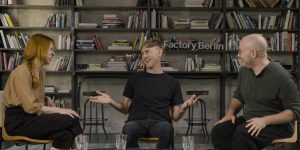
Interdependence with Richie Hawtin: AI for humans
Holly Herndon, Matt Dryhust
In dieser Diskussion sprengen wir die binäre Trennung von Mensch und Maschine im Prozess des Musikmachens, untersuchen Möglichkeiten, wie KI-Systeme dazu beitragen könnten, dass mehr Menschen bezahlt werden, anstatt verdrängt zu werden, und diskutieren die Notwendigkeit, dass KünstlerInnen im Prozess der Entwicklung von KI-Tools teilhaben.
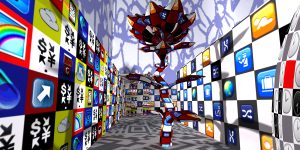
CNMAT ODOT
John MacCallum(USA), Jeff Lubow (USA)
In diesem Workshop geben wir eine kurze, praktische Einführung in ODOT, eine dynamische, multiparadigmatische Programmierumgebung, die mit Open Sound Control arbeitet. ODOT wurde Anfang 2007 an der CNMAT entwickelt und hat sich zu einer leistungsstarken und robusten Suite von Werkzeugen entwickelt, die in einer Vielzahl von Kontexten nützlich sind, von der Signalverarbeitung für Gesten bis hin zur computergestützten Komposition. Während dieses Workshops werden wir den aktuellen Stand des Pakets und die Zukunft des Projekts diskutieren.
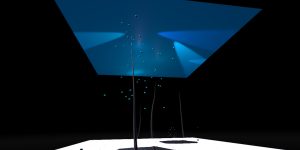
The QuBits VR Space
Jon Kulpa
Jon Kulpa is available to host a live online demonstration/performance of QuBits VR. The QuBits project is a virtual reality (VR) environment built by the composer that offers an expanded medium for musical experience with integrated space and visuals. The environment was designed to explore a musical aesthetic valuing sound mass, spatial sound, evolving sound, and algorithmically generated sonic structures. The user of the VR system plays a key role in shaping these musical elements. The user first discovers what behaviors are possible through exploration and chance encounters. They can then shape each discovered behavior with nuance if they choose. The system provides a unique experience each time it is run. The sounds are a mix of real world sampled sound, granular synthesis, and real-time generated synthetic sound.
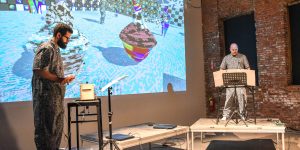
ORCHIDEA with Composer and Lead Researcher at CNMAT
Carmine Cella
Carmine Cella is available to host a live online demonstration/workshop for ORCHIDEA, a framework for static and dynamic computer-assisted music orchestration. Orchestration consists largely of choosing combinations of sounds, instruments, and timbres that support the narrative of a piece of music. The ORCHIDEA project assists composers during the orchestration process by automatically searching for the best combinations of orchestral sounds to match a target sound, after embedding it in a high-dimensional feature space.
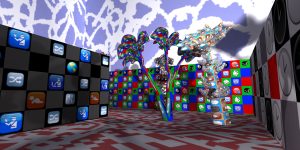
ALICE, ALICES UNCHAINED, and THE FLOWER MATRIX
Edmund Campion and Claudia Hart
ALICE, ALICES UNCHAINED, and THE FLOWER MATRIX is a long-term collaborative project between media artist Claudia Hart and composer Edmund Campion (CNMAT). Since 2013, they have collaborated on the ALICES project, a series of artworks, loosely connected to Alice in Wonderland, and appearing through the years as a series of pieces that migrate from performance-based multi-media theatre, video, gallery installations, to virtual reality environments. This film documents the history of the on-going project with excerpts from several of the works along with interviews with the artists and collaborators.
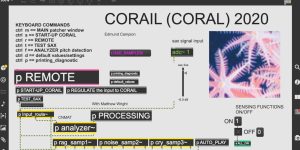
Live Performances in occasion of the AIxMusic Opening ceremony
Edmund Campion, CORAIL with Steve Adams of the Rova Saxophone Quartet, and Andrew Blanton, WAVEGUIDE, Claudia Hart, Edmund Campion
Edmund Campion, CORAIL with Steve Adams of the Rova Saxophone Quartet, and Andrew Blanton, WAVEGUIDE, Claudia Hart, Edmund Campion WAVEGUIDE - 2017 - percussion, distributed audio and electronics: Music composition and performance by Andrew Blanton Text by Yvette Granata Composition and software by Andrew Blanton Special thanks to Neal Riley for technical support. CORAIL - version 2020 - improvising saxophonist and interactive computer system: Composition and computer environment design by Edmund Campion, Director, CNMAT Tenor Saxophone by Steve Adams Software contributions by Manuel Poletti, Matthew Wright, Edmund Campion (and a host of others) This concert is being streamed live from the Center for New Music and Audio Technologies (CNMAT) and made possible by CNMAT Researcher and Technical Director, Jeremy Wagner
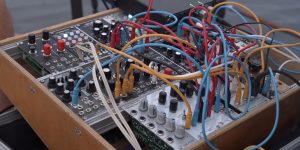
“Non-Player Piano” sound performance
HSE Art And Design School: Sound Art and Sound Design Department
Non-Player Piano was created specifically for Ars Electronica Festival 2020. It will be performed on Moscow River in collaboration with Mubert AI App. The performance will include live music improvisations aided by an artificial neural network “trained” to analyze the surrounding environment, such as the weather, time of day, location, speed, and type of movement.
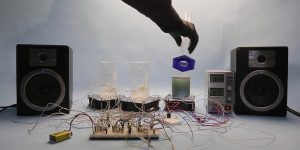
Datasets vs Mindsets: Performance Program
Katarina Melik-Ovsepian + Nikita Prudnikov (aka monekeer) (RU), Maria Molokova (RU), Kira Weinshtein (RU), Nikolay Golikov, Yulia Glukhove (holoherz), EOLA
The project includes a one-day performance program using innovative forms of representation and interaction between online and offline formats, such as new approaches to webcasting and experimental web-interfaces, which create brand-new user experiences for online visitors.
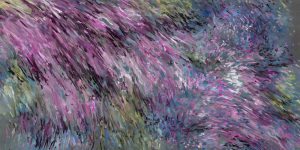
Transient - Impermanent paintings
Quayola (IT)
Transient - Impermanent paintings is an audiovisual concert for two motorized pianos and two conductors in collaboration with generative algorithms. Hyper-realistic digital brushstrokes articulate endlessly on a large-scale projection as if on a real canvas. Each brushstroke is sonified with a piano note, creating polyphonic synesthetic landscapes.
The Grid: Full Festival Experience
The Grid (US/EU), Gray Area (US), Codame (US), ZERO1 (US), MUTEK.SF (US), EUNIC Silicon Valley (US), EUNIC Washington DC (US), EUNIC New York (US), Ars Electronica AIxMusic Festival (AT), STARTS, European Commission (EU), Center for Humane Technology (US), Salesforce (US)
By mobilizing artists, technologists, and policy makers from around the world, Exposure reimagines interdisciplinary and international collaboration to overcome deadlock and siloed thinking. Through 4 days of art, panels, performances, interactive experiences, talks, and workshops, Exposure works towards shaping technological development for the benefit of all. Be part of it and join in on four livestreams!
AIxLITERATURE: Poetry Is A Machine
The Grid (US/EU), Vikram Chandra (IN/US), Bryan McCann (US), Andrew Piper (CA), M Eifler (US), Clemens J. Setz (AT), Clara Blume (AT/US), Vanessa Chang (US/SG/AU)
How does the algorithmic contour the lyrical? Nearly a century ago, William Carlos Williams declared, “A poem is a small (or large) machine made out of words.” As artificial intelligence becomes a writing tool, his words take on a new resonance. Some critics of algorithmic literature decry the incursion of automation into this essentially human creative practice.
AI x MUSIC: Artificial Creativity or Enhanced Humanity
The Grid (US/EU), Christine Payne (US), Monica Dinculescu (US), Ali Nikrang (AT), Clara Blume (AT/US)
Die Musikindustrie hat sich in den letzten Jahrzehnten drastisch verändert. Unabhängig davon, ob zum Guten oder zum Schlechten, sind diese Entwicklungen mit dem technologischen Fortschritt und einem sich rasch anpassenden Verbraucherverhalten verbunden. Technologie-Unternehmen investieren in eine Zukunft, in der KI ein unverzichtbarer Teil des kreativen Prozesses ist. Jüngste Erfolge ebnen bereits den Weg für vollständig durch Algorithmen erzeugte und gespielte Musik. Aber macht das KI zu einem Künstler?


